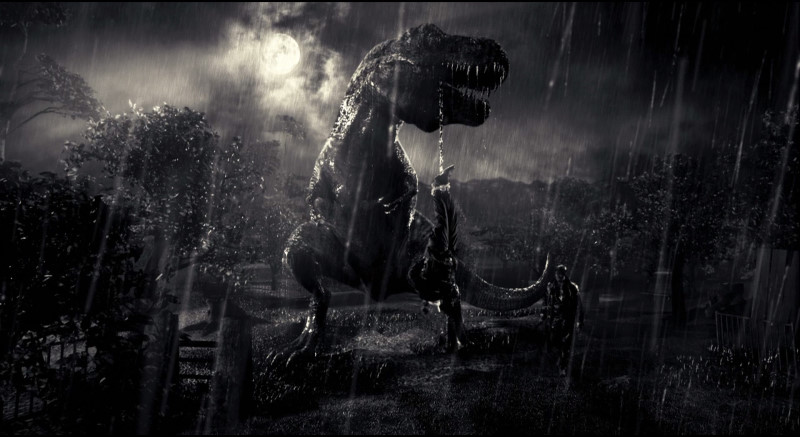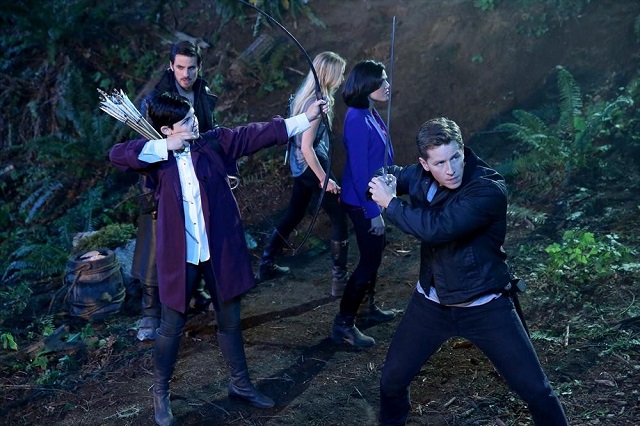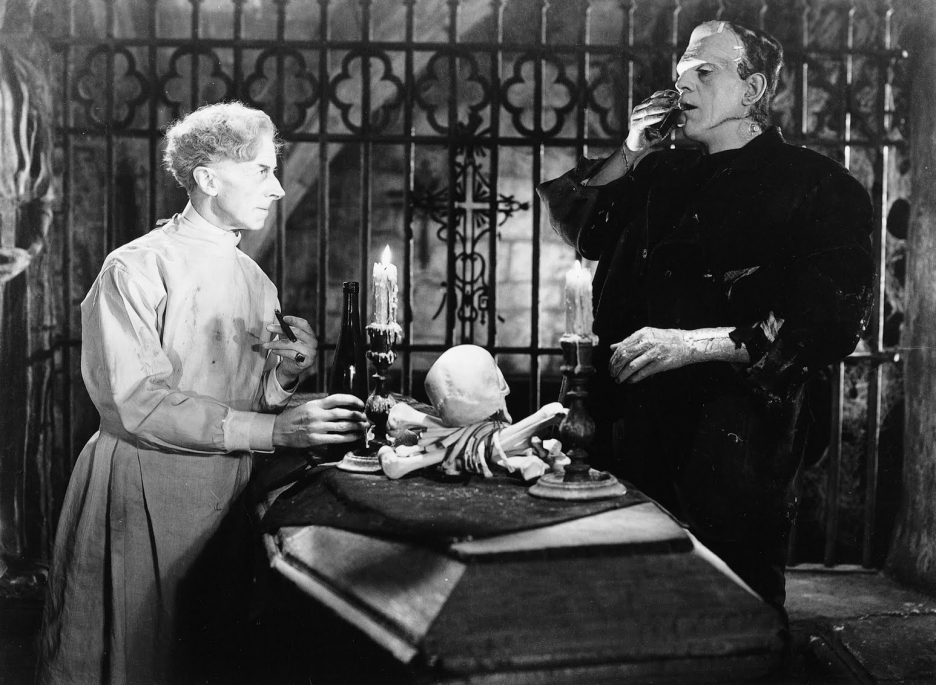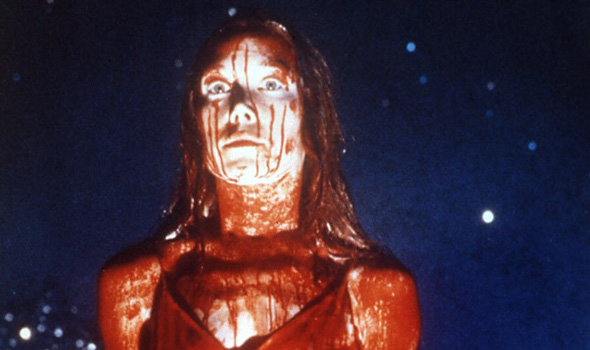Sin City
Directed by Robert Rodriguez and Frank Miller
Written by Frank Miller
U.S.A, 2005
Every Friday during the month of June, the Friday Film Noir column will be taking a slightly offbeat look at noir in film. More specifically, films that embrace noir elements in their own fashion yet are not from the traditionally recognized era will be under the radar. Enjoy!
The spillover effect can be a wonderful thing, especially when the subject matter is as malleable as noir. A good story about fatalism, characters either coming to terms with or foolishly fighting the inexorable downward spiral their lives are condemned to suffer, decent people doing questionable things for supposedly noble causes, others not investing in noble causes at all…There is more than one venue for such wonderfully depressing tales about wonderfully depressing characters. Since noir is recognized as a variety of storytelling which is visually arresting, comics (or graphic novels) also spring to mind, something author Frank Miller took to heart when he wrote his Sin City series, a hyper stylized, super violent version of an already stylized an violent genre. It was only a matter of time, therefore, before somebody came along to transplant what was on the page to the screen. That man was director Robert Rodriguez, with a little bit of help from Frank Miller himself.
Sin City the film takes a interesting narrative route in order to cinematically translate what was in the comic. Given that Miller wrote several different stories occurring in the same metropolis but which concerned different characters, rather than pick one, director Rodriguez chose to adapt three (four in truth, given that the trilogy has a bookend involving a recurring character) in a single movie. One involves a hardened police detective (Bruce Willis) as he tries to save, for the second time in his life, the same innocent girl (Jessica Alba) from the clutches of the sadistic, perverted son (Nick Stahl) of a corrupt senator (Powers Booth). A second sees a beefed up, career criminal (Micky Rourke) go all around town in an attempt to avenge the death of the one hooker (Jamie King) who was ever nice to him, a journey which sees him face off against villains as curious and terrifying as an influential priest (Rutger Hauer) and the latter’s demonic assassin (Elijah Wood). Finally, another has a vigilante gunman (Clive Owen) put an end to a crooked cop’s (Benicio Del Torro) reign of terror, which has reverberations on a city district literally run by hookers (chiefly Rosario Dawson, Devon Aoki, Alexis Bledel).
What Frank Miller, in his original comic series, and Robert Rodriguez, with this unforgettable comic book movie, have done is send the noir genre into another dimension entirely. At its heart, Sin City is pure noir, no question about it. There is, just as one example, a cop, played by Bruce Willis, who is beaten up on the inside as well as psychologically, yet remains persistent in his quest to assure the safety of a young girl, the older version played by Jessica Alba, even if it means confessing horrid crimes he did not commit as the fall guy, sustaining prolonged beatings from crooked cops, wrestle with the doomed love of the very girl he is trying protect, and pull all of this off despite a terrible heart problem. He has set out to do well regardless of the tallest of odds which starkly stand against him. In essence, he is doomed from the very outset because life, as dictated by humanity’s vile nature to consume and self satisfy without a care for the consequences (in a completely warped, stylized fashion here in Sin City) will not, and maybe even cannot let him win entirely. He may accomplish parts of his goal, but he will fail at one of them, either the girl’s safety, or his own. And that, readers, is an assessment of only one of the film’s three stories.
However, despite all of these ingredients, many of which should feel familiar to fans of the genre (certainly the overall sense of impending doom which permeates throughout this and the majority of traditional noirs), the intensity with which the aforementioned ingredients are swirled around produces a very special experience. The irony of the situation is, of course, that while visually the film is ostensibly a scene by scene moving reproduction of the source material’s individual frames, said original source material, in its own way, emulated the visual tones of the old noir films to begin with. The book is entirely in pure black and white, with the drawings highlighting contrasts whenever possible in order to make the blacks or the whites stand out even more than they normally would have. Granted, the film offers far more nuance in its colour scheme, with shades of grey allowing for a slightly more natural look (as natural as it ever will be in a film like this) Prescription glasses, shafts of light, bullets holes and even blood itself look astonishing in the film even though it’s all white, simple as that. The film brilliantly exposes how the amazing can be when filmmakers use the simplest of colour schemes judiciously and to maximum effect. This is not filming in natural locations and subsequently stripping the picture of its colour. Rather, Rodriguez and company opted, in every instance, to film the actors in front of a green screen and fill in the backgrounds, some of which look deliciously artificial, later on and accentuate the iconic images with pure white or black, the scene when Clive Owen’s character sinks into a lake of tar is a stunning moment precisely for the look. There is rarely, if ever, a scene which does not make one simply appreciation the visuals. Hyperbole? For sure, although this is one of the rare instances when such high praise is very much warranted.
Naturally, if Sin City is to be a a hyped up version of the emotionally, psychologically and sometimes graphically violent world of noir, then one should come to expect a terrifically violent film on all fronts. In that regard, Rodriguez and Miller do not disappoint in the slightest. Lovers of traditional noir should, perhaps, be forewarned. When it is argued that the film ups the ante, it truly ups the ante. The characters are put through a nearly ridiculous amount of physical and emotional pain throughout the film, with the villains clearly stating their cases and letting the heroes, or anti-heroes, know it and not letting them forget it either. Rape, torture, and murder are all in a day’s work for the antagonists in Sin City, so anybody expecting the film to merely accentuate the visual look of traditional noirs might have another thing coming. The language is often foul, the motivations vile and and the consequences despicable for the most part, like men having their groins literally shot off or women being eaten by a mute cannibal. In some respects, the movie is almost a noir mixed in with some horror elements.
The cast, from top to bottom, do their best to fit the bill, even though not everyone possesses the acting chops to live up to the demands. While the likes of Brittany Murphy (sporting an atrocious accent) and, surprisingly enough, Benicio Del Torro fairing rather poorly, many of the actors feel right at home with the sort of characters each is asked to bring to life on screen. Bruce Willis is superb as the weather beaten cop who won’t give up an inch if it means compromising his principles, Clive Owen is cool as a cucumber, Micky Rourke is the ultimate homicidal hero (how often does one read or here that sort of a description?), Rosario Dawson is freakish and incredibly sexy as a warped out femme fatale and Jessica Alba, yes, the often criticized Jessica Alba pulls off a decent performance as the wide eyed, innocent yet mentally tough target of one grotesque looking and appropriately filthy Nick Stahl. Other have smaller if no less impressive role, like Michael Clarke Duncan as a sort of enforcer for the senator yet dresses up like a Nazi (on second thought, maybe that is not so strange), Devon Aoki as Rosario Dawson’s silent assassin and the inimitable Rutger Hauer in a tiny but memorable role as a dirty priest.
Clearly Sin City is not for everybody. Some, for example the noir die hards, may even decry its inclusion in a column about the genre. It is noir on ecstasy and so excessive, it might therefore be seen as a mere perversion, or bastardization of the genre. The simplest response is…so what? Sin City takes noir deeper into blacker depths than ever before. True enough, tt never has to go to such depths again, but as one, singular wild ride it works wonderfully.
-Edgar Chaput








